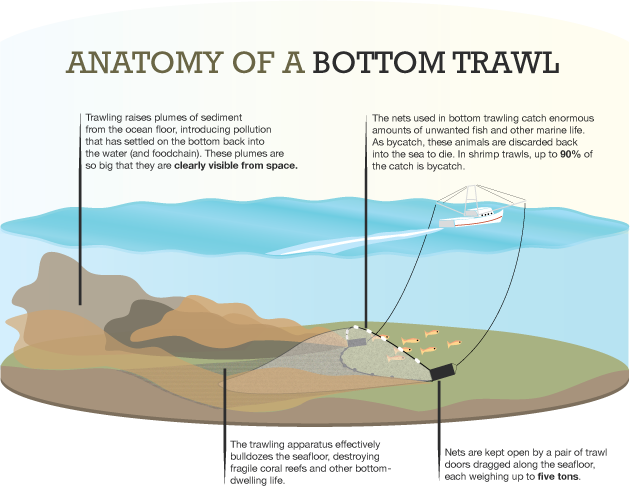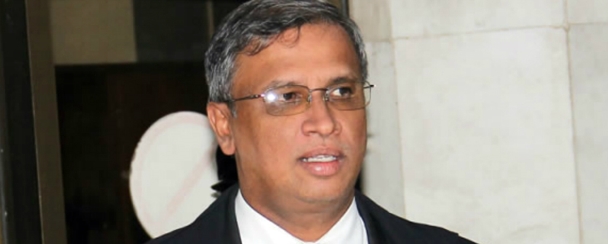A Bill prohibiting mechanized bottom trawling was filed in parliament on the 21st of April 2015 by M. A Sumanthiran, Member of Parliament. The Bill calls for the amendment of the Fisheries and Aquatic Resources Act, No 2 of 1996.
The Bill in essence proposes to prohibit trawling operations in Sri Lankan waters. The Bill seeks to:
• Amend legislation which allows for licenses to be granted for trawling operations;
• Prohibit the use, possession, import, transport, purchase and sale of trawl nets for the purpose of carrying trawling operations in Sri Lankan waters;
• Specify the action to be taken in the event of persons engaging in trawling operations in contravention of these provisions.

Bottom trawling is an extremely destructive form of fishing and can result in long term damage to marine resources. Over the past few years we have witnessed the extent to which Indian trawlers have continued to enter Sri Lankan waters, and exploit our resources. “Foreign fishermen fishing in our water has caused great distress to our fishermen specially those living in the north”, M.A. Sumanthiran stated regarding the issue. In addition to these Indian trawlers, there are also Sri Lankan trawlers operating within Sri Lankan waters.
The Sri Lankan marine system is rich in resources. The impact of mechanized bottom trawlers on these marine resources is extremely detrimental to the livelihoods of all Sri Lankan fishermen who depend upon these resources for fishing. These trawlers dig through the seabed indiscriminately catching all organisms in its path. The seabed is destroyed, and all resources on the seabed, which are not required, are discarded, thereby destroying the sustainability of these resources. The effect of these trawlers are such that it destroys resources for the present and future generations. It is our Sri Lankan fishermen who are at stake, as a result of the continued operation of these vessels.
Whilst there are proposals tabled to police the International Maritime Boundary Line (IMBL) and to introduce a licensing regime, an independent analysis done by Verité Research explains why neither proposal will actually solve the problem, and suggests the introduction of a better alternative – imposing a total ban on mechanized bottom trawling which is the objective of the Bill.
Sumanthiran further stated, “We have taken several remedial measures pertaining to the same, one of which was a discussion with the President. One such measure is to bring in a legislative measure towards which a Bill has been presented to Parliament. If this act is implemented deep sea trawling will be banned and will be considered an offence. The offender will be sentenced to a two year prison term and will have to pay a fine of Rs. 50,000.”
Source: Verité Research – www.ft.lk/2014/11/05/
